Are Nimbys blocking major infrastructure plans?
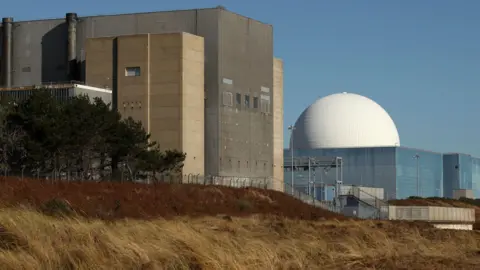 PA Media
PA MediaMajor infrastructure projects in the East of England have been delayed by lengthy legal challenges, according to the government. Prime Minister Sir Keir Starmer has vowed to end so-called Nimby - Not in My Back Yard - challenges from those he says stand in the way of the country's growth. But just how disruptive have these challenges been in the East of England, and why have groups campaigned against the projects cited by the government?
What has the government said?
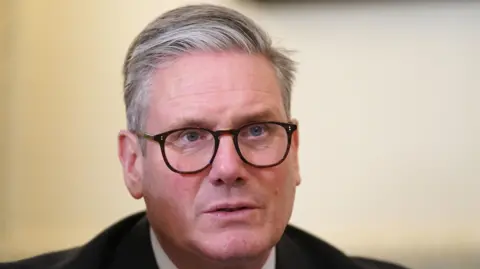 PA Media
PA MediaOn Thursday, Sir Keir announced plans to block campaigners from making repeated legal challenges against decisions on major infrastructure projects in England and Wales.
His reasoning was to prevent "cynical" and "hopeless" appeals blocking plans for things such as wind farms, nuclear stations and transport projects.
As part of the announcement, Downing Street referenced Suffolk's Sizewell C nuclear power station, improvement plans for the A47 in Norfolk and wind farm infrastructure in the region that has been hit by campaigners' challenges.
What do these projects entail?
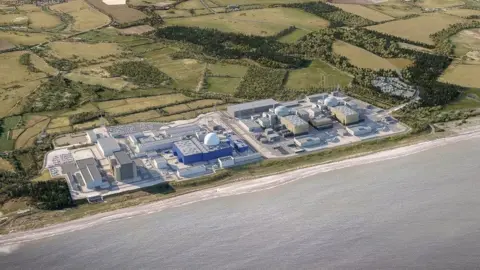 Environment Agency
Environment AgencyEnergy company EDF wants Sizewell C to provide what they claim would be decades of clean, reliable electricity, but it is waiting for a final investment decision, expected this year.
The government previously said new nuclear plants would be needed if the UK wanted to hit its target to decarbonise power generation, and some work has begun on the site in preparation.
In Norfolk, National Highways is undertaking three major upgrades to the A47.
The first scheme began last year on the section of the road between North Tuddenham and Easton, east of Norwich, which will create two additional lanes and two new junctions by 2027.
Finally, the LionLink and Sea Link offshore wind projects in Suffolk are due to see converter stations built at several locations in the county.
National Grid is waiting for permission from the government but has spoken of the wider project's importance.
What campaigns have delayed these projects?
Several groups have taken action against Sizewell C over a number of issues.
Most recently, Theberton and Eastbridge Action Group on Sizewell Limited lost a High Court bid to challenge the Office for Nuclear Regulation's decision to issue a licence for the site.
In December 2023, the Court of Appeal dismissed a legal challenge from Together Against Sizewell that argued the government failed to consider the need for a water supply at the site.
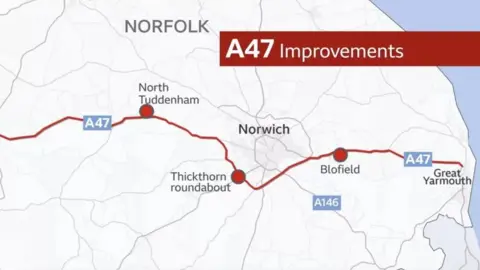
The A47 improvement schemes were previously thrown into doubt when a former Green Party councillor attempted to block them.
Andrew Boswell claimed the Department for Transport's development consent orders, approved in 2022, failed in each case to assess the significance of the cumulative greenhouse gas emissions, as required by law.
However, he lost his case at the High Court and then had a challenge dismissed at the Court of Appeal.
In May, the Supreme Court turned down his application for a legal challenge to be heard there.
National Highways said delays to the three schemes had caused costs to soar due to the impact of inflation.
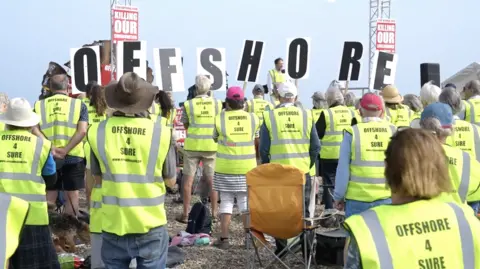
Offshore4Sure has campaigned against the building of the substations in Suffolk.
It wants developers to find more appropriate sites, but National Grid said this would lead to a delay in greener energy and greater energy security.
It added that there were "no suitable brownfield sites in east Suffolk" for the substations.
Have any campaign groups spoken about the government's recent announcement?
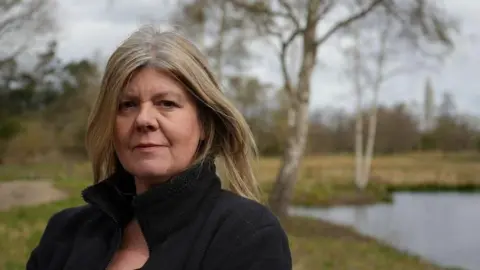
Campaign group Stop Sizewell C has been vocal against the nuclear power station for a number of years.
Alison Downes, executive director of the group, said on Thursday that the prime minister's comments suggested people were "always winning legal challenges" – which was "very far from being the case".
She felt the decision could "erode the right" for people to defend where they live.
"Sometimes [legal challenges] are the only means left to address fundamental flaws in a project that have not been addressed either by the developers or by ministers," she said.
"It's people most affected by a project who are the ones who take the time and trouble to really read the detail and understand where all the difficulties are that quite often ministers and developers will try to gloss over, and which potentially could lead to very serious problems down the line."
What did the energy secretary say?
 John Fairhall/BBC
John Fairhall/BBCDuring a visit to the Port of Lowestoft on Thursday, Energy Security Secretary Ed Miliband told the BBC it was "absolutely right" for local people to be able to have a judicial review over what the government was doing.
However, he said there was often an "endless cycle of case after case on the same issue".
"I think we were elected to make a different choice as a country, which is [to] listen to local people [and] make sure that local communities get direct benefit if they host clean energy infrastructure, but also to build that infrastructure that is in the interest of the country," he added.
What happens next?
The government said it planned to use the upcoming Planning and Infrastructure Bill in March to introduce legislative changes to "drive action at a strategic level", providing certainty for developers and the environment.
It also promised to make 150 major infrastructure project decisions by the next election.
Follow Suffolk news on BBC Sounds, Facebook, Instagram and X.
